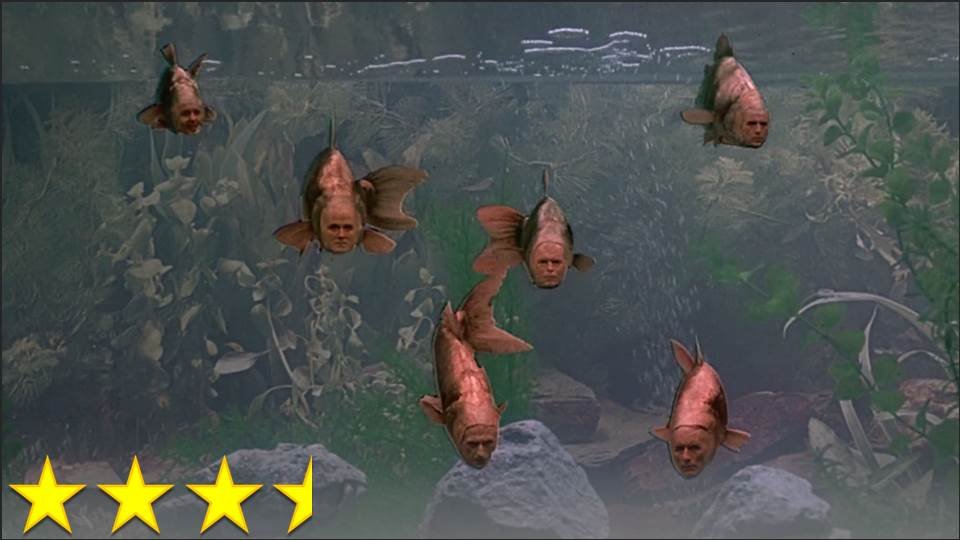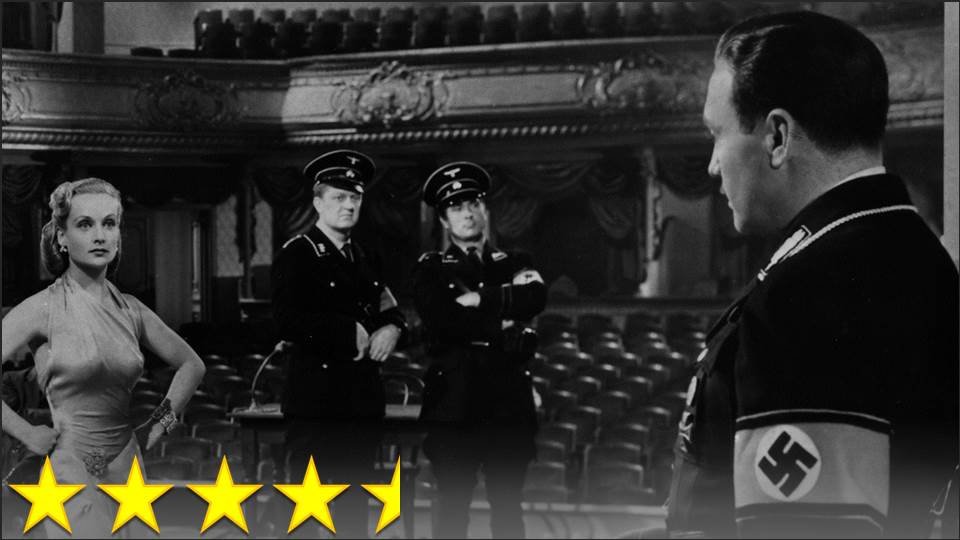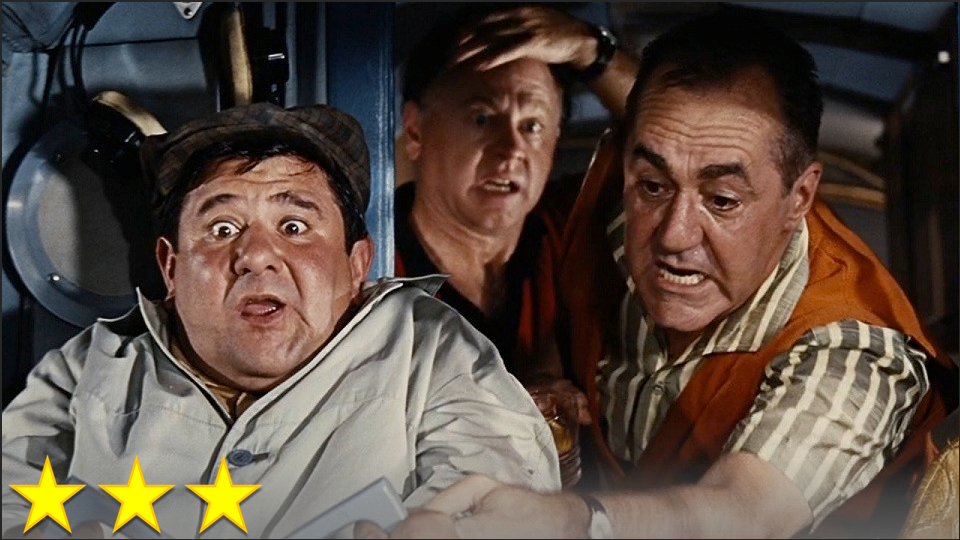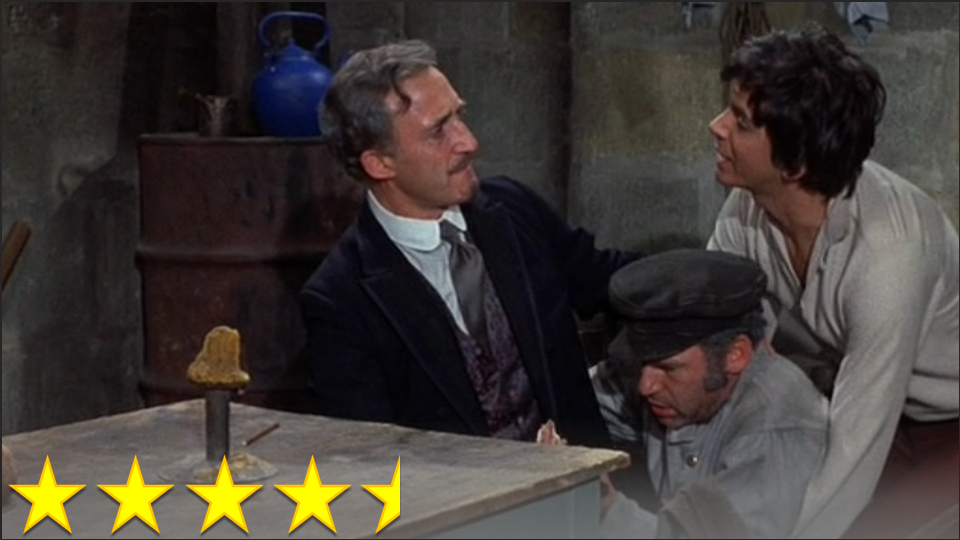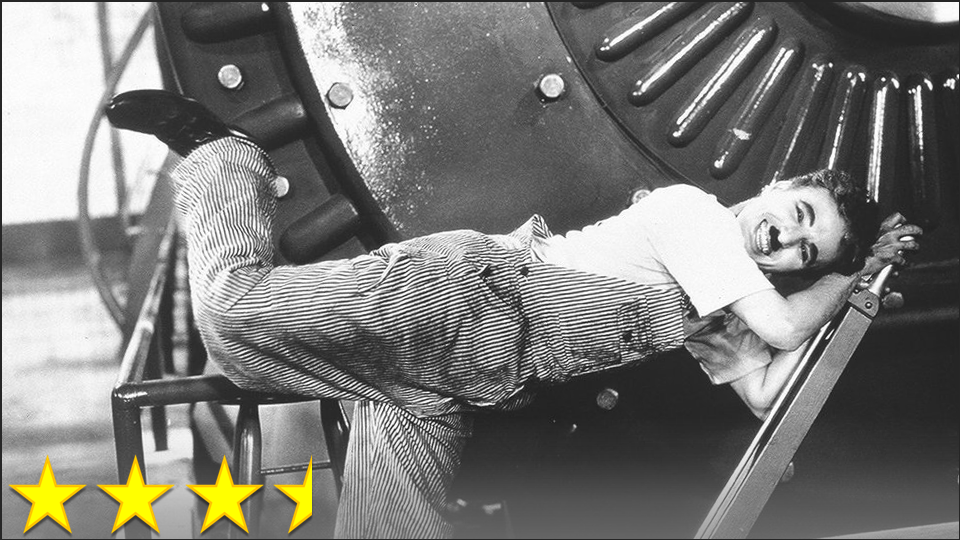This is it – the last film in the Monty Python “Holy Trinity” – and it’s certainly the weirdest.
Its “prologue” is the worst part, and it is very clearly directed by Terry Gilliam. I have mixed feelings about Gilliam, and I think this short is a good example of what bugs me about his work. Somewhere between the films of Terry Gilliam and the books of Roald Dahl is the land of “Semi-Horrific, Mildly Comedic, Awkward Whimsy,” or “SHMCAW” for short. Shmcaw is my least favorite thing in cinema, or at least it’s up there. This is that nauseating feeling I have when a film presents uncomfortable dehumanizing in a whimsical way, causing my face to scrunch up. It happens in Prisoner of Azkaban when Harry’s aunt inflates, and all throughout The Witches, and it happens in The Crimson Permanent Assurance when we’re supposed to laugh at random businessmen being forced to jump out of a building to their deaths by delighted elderly folks. The whole thing just feels wrong, but I will not detract any points from my rating, because this is the short feature that plays before the main feature, and Wikipedia gives it a separate article as its own short film, but I felt the need to mention it because it is (in some respects) inseparable from the film.
There is very little for me to say for the film itself. I think that it offers much of the kind of comedy I expected, but its main focus seems to be doing whatever any other directing, production company, writers, or group of performers would never, ever, ever be allowed to do in a film distributed by Hollywood. It breaks rules of cinema that no one ever invented – there was no concept of a rule against showing a man in an elephant suit for no reason, or devoting half the movie to unimportant fish for no reason, or giving an impossibly fat man who vomits profusely and eats until he explodes his own scene for no reason. Monty Python made up rules to break, all in the spirit of giddy, childlike (or perhaps childish) fun. There is, however, the question of purpose – Life of Brian has good reasoning behind its scenes, with an important message, but why does this film need to exist? Is it merely here to weird out the audience as much as possible?
Personally, I’d prefer to see more sense to the senselessness, more logic to the lunacy, and more method to the madness, but that is not what the film is for. Many have said before that it is essentially an extended episode of Flying Circus, and that’s what it feels like to me. It is not their best film, but it is pretty good, with several, several moments that continue to pop up in my head many weeks every watching the film, and they continue to give me a chuckle. The music is some of Python’s best, making for a very enjoyable soundtrack. This movie offers a fair mix of some of the best and the worst that Python has to offer, but by the 1980s, the Pythoners had learned how to ensure that their worst was still rather fun.
